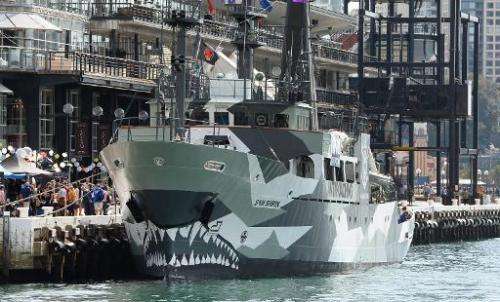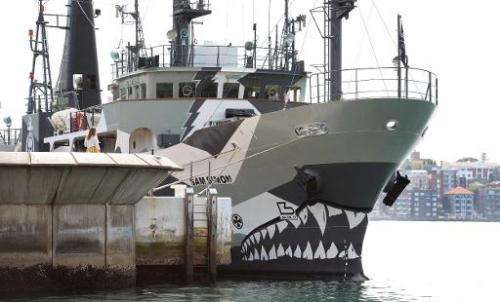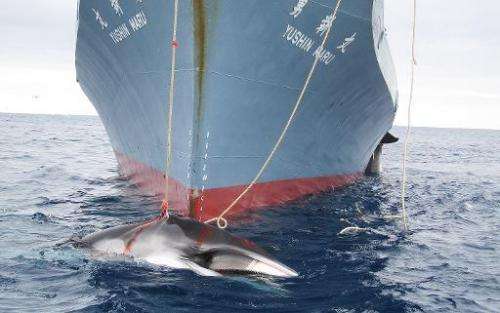Sea Shepherd to switch campaign from whales to toothfish

Conservation group Sea Shepherd Australia said on Wednesday it will switch its Southern Ocean campaign from whales to toothfish if Japan cancels this year's hunt in Antarctica.
Sea Shepherd, which has spent a decade harassing the Japanese harpoon ships during the southern hemisphere summer, said it would still keep its eye on any whaling vessels.
But provided Tokyo abided by its promise not to kill whales, the group would instead target the illegal fishing of Patagonian and Antarctic toothfish.
"If the Japanese are indeed suspending the slaughter this year we will conduct a Southern Ocean patrol mission with a focus on the illegal poaching of toothfish," spokesman Adam Burling told AFP.
Toothfish live in Antarctic waters at depths of 300 to 2,500 metres (1,000 to 8,200 feet) and are long-lived species, which means they are vulnerable to over fishing due to their slowness to mature.
Sea Shepherd said increased surveillance and patrolling of waters by authorities in Australia and New Zealand had improved the toothfish situation in some areas.
But illegal fishing, by poachers who often switch flags on their vessels, was continuing in what the group calls the "shadowlands" of the Southern Ocean which are extremely remote and outside national jurisdictions.
"We know there are at least half a dozen illegal operators targeting the toothfish," Burling said.
"Our plan is to haul up the long lines, which can also devastate bird life, and work with authorities from nearby nations to see the vessels seized."

The "Icefish" campaign could end illegal fishing of toothfish and allow stocks of the species, which activists say has "anti-freeze type blood", to replenish, he added.
Japan was forced to abandon its 2014-15 whale hunt in March when the International Court of Justice said the annual expedition was a commercial activity masquerading as research.
Tokyo's pro-whaling government has since said it hopes to bypass the ruling by giving the controversial mission a more scientific focus, including collecting the data needed to calculate the number of whale catch allowable.
But it appears unlikely to launch a campaign this year.

Burling said all three vessels of Sea Shepherd's main Antarctic fleet would head south to confront the whalers if the factory ship Nisshin Maru did leave as part of a Japanese fleet.
"Whatever happens, Sea Shepherd will not relent on taking on the Japanese whalers and when the killing starts again, be it this year or next, we will be there to halt it," he said.
Japan has hunted whales under a loophole in the 1986 global moratorium that allows lethal research on the mammals, but has made no secret of the fact that their meat ends up in restaurants and fish markets.
© 2014 AFP

















